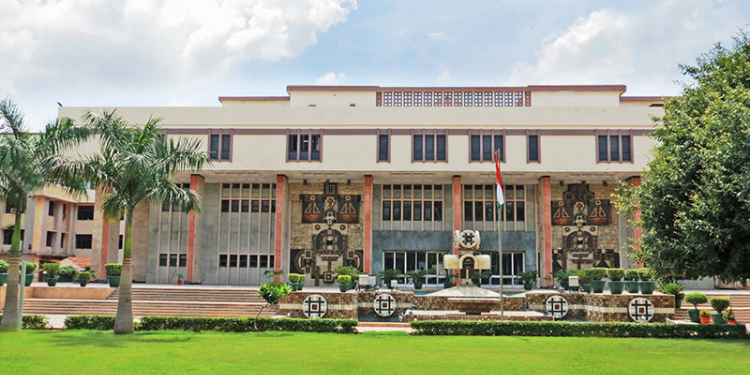The Delhi High Court, in dismissing the appeal of a rice exporter, upheld a single bench’s decision that the exporter could not be allowed to export 11,000 metric tons (MT) of banned non-basmati white rice. This was due to the exporter’s failure to fulfill the conditions necessary for exemption from the export ban imposed by Notification No. 20/2023 dated July 20, 2023, issued by the Department of Commerce, Government of India.
The bench, consisting of Acting Chief Justice Manmohan and Justice Manmeet Pritam Singh Arora, noted that the Central Government’s objective in imposing the immediate ban was to prevent a food crisis in the country. Therefore, strict adherence to the exemption conditions outlined in the Notification would align with the intent behind the ban.
The appellant, an exporter of rice and other agricultural products, had received an order from an overseas buyer for the purchase of 40,000 MT of rice to be exported from Kandla Port in Gujarat. The appellant purchased 28,000 MT of rice and applied to the port authority at Kandla for permission to store this amount. However, due to space constraints at the port, permission was granted to store only 11,000 MT of rice. The remaining rice was stored in various private warehouses in Kandla.
The Government of India’s Department of Commerce issued Notification No. 20/2023 dated July 20, 2023, prohibiting the immediate export of non-basmati white rice effective from 21:57:01 hours on July 20, 2023. However, conditional exemptions were provided to allow ongoing exports, categorized into four distinct groups.
The appellant, dissatisfied with the denial of permission to export the remaining 11,000 metric tons (MT) of rice, filed a writ petition. The appellant argued that all necessary steps within their control were taken before the deadline and, therefore, based on the doctrine of substantial compliance with exemption conditions, sought approval to export the consignment. However, the prayer was rejected, and the writ petition was dismissed by the Single Judge.
The appellant argued that despite taking all possible steps to comply with the exemption conditions outlined in the Notifications dated July 20, 2023, and amended by the Notification dated August 29, 2023, they were not permitted to export 11,000 metric tons (MT) of rice.
The department explained that in 2022, due to a sudden surge in global rice prices, there was an increase in rice exports from India, which raised concerns about food security within the country. The Notifications were issued to manage domestic rice availability and prevent a potential food crisis. While certain exemptions were provided for the export of non-basmati white rice, the Directorate General of Foreign Trade (DGFT) clarified that compliance with any one of the exemption conditions would permit exports. However, the appellant failed to meet any of these conditions and was thus denied permission to export 11,000 MT of rice. The department emphasized that the intention behind the immediate export ban was to effectively control prices, given the sudden rise in rice exports and the resulting food security concerns in India.
The department further argued that the appellant did not challenge the legality of the Notifications nor did they claim any violation of fundamental rights, making the writ petition not maintainable.
The central issue was whether the appellant should be allowed to export the 11,000 MT of rice from private warehouses near the customs port at Kandla, Gujarat, based on substantial compliance with the exemption conditions.
The court noted that the appellant initially claimed in the writ petition and the present appeal that they were unable to comply with condition (v) of Paragraph 2, specifically regarding the payment of export duty on ten shipping bills for 10,000 MT, despite submitting them on the Respondent’s portal (ICEGATE). However, the appellant’s claim was deemed vague and unsubstantiated.
Ultimately, the court ruled that the appellant failed to satisfy the exemption conditions outlined in the Notifications, leading to the dismissal of their appeal.

















